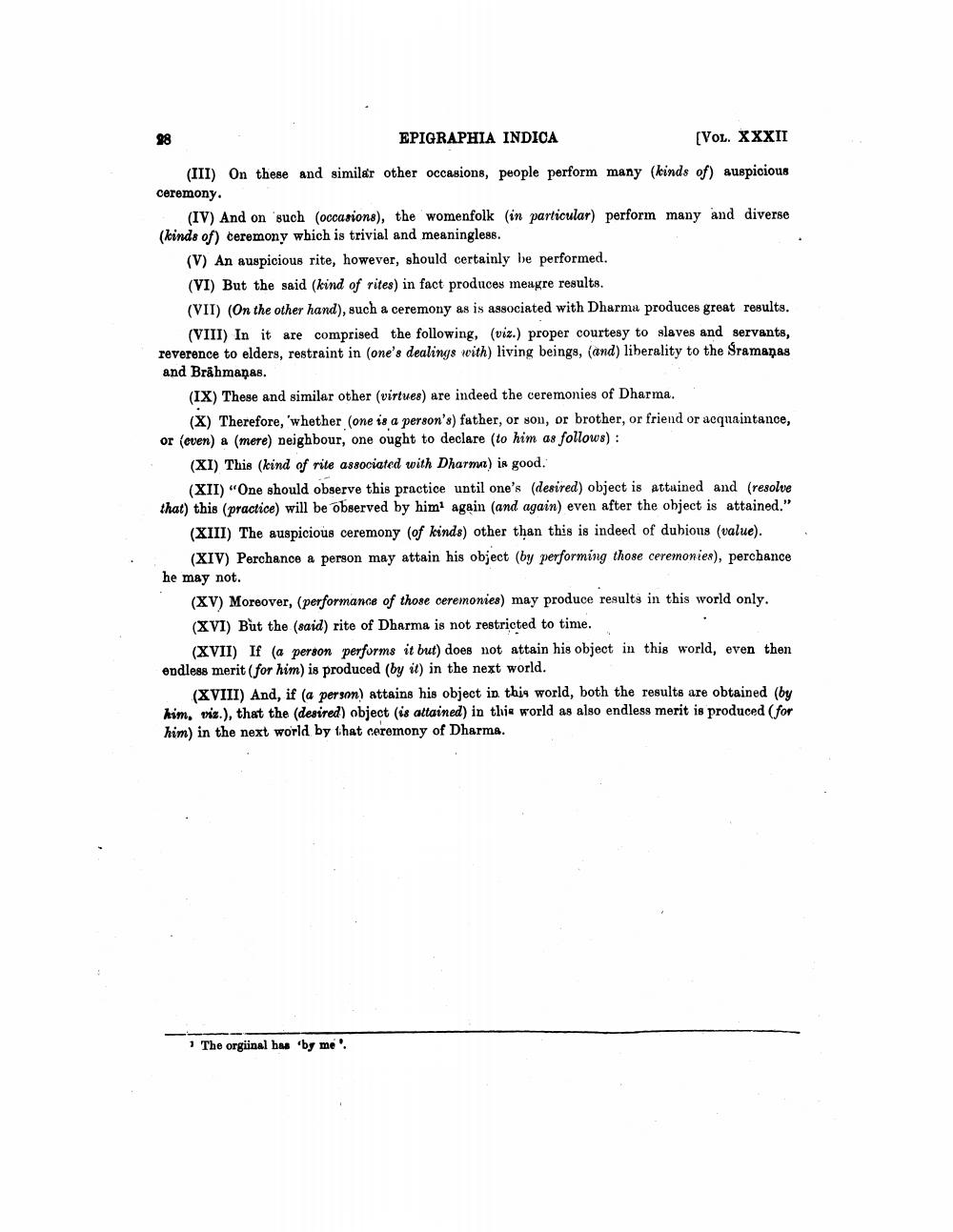________________
EPIGRAPHIA INDICA
(VOL. XXXII (III) On these and similar other occasions, people perform many kinds of) auspicious ceremony.
(IV) And on such (occasions), the womenfolk (in particular) perform many and diverse (kinds of) ceremony which is trivial and meaningless.
(V) An auspicious rite, however, should certainly be performed. (VI) But the said (kind of rites) in fact produces mengre results. (VII) (On the other hand), such a ceremony as is associated with Dharma produces great results.
(VIII) In it are comprised the following, (viz.) proper courtesy to slaves and servants, reverence to elders, restraint in (one's dealings with) living beings, (and) liberality to the Sramaņas and Brāhmaṇas.
(IX) These and similar other (virtues) are indeed the ceremonies of Dharma.
(X) Therefore, whether one is a person's) father, or son, or brother, or friend or acquaintance, or (even) a (mere) neighbour, one ought to declare (to him as follows) :
(XI) This kind of rite associated with Dharma) is good.
(XII) "One should observe this practice until one's (desired) object is attained and resolve that) this practice) will be observed by him again (and again) even after the object is attained."
(XIII) The auspicious ceremony (of kinds) other than this is indeed of dubions (value).
(XIV) Perchance a person may attain his object (by performing those ceremonies), perchance he may not.
(XV) Moreover, (performance of those ceremonies) may produce results in this world only. (XVI) But the said) rite of Dharma is not restricted to time.
(XVII) If a person performs it but) does not attain his object in this world, even then endless merit (for him) is produced (by it) in the next world.
(XVIII) And, if a person) attains his object in the world, both the results are obtained by him, viz.), that the desired) object (is attained) in this world as also endless merit is produced (for him) in the next world by that ceremony of Dharma.
.
1 The orginal has by me




